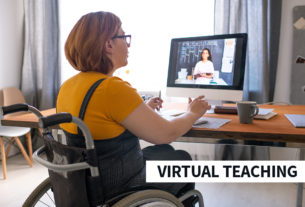Everyone knows great interpersonal abilities are vital in every profession.“Your victory requires interaction!” if you concentrate and look hard enough. To build a successful career as well as good leadership skills, it is essential to enhance your communication abilities. Effective communicators are open to new ideas.
We’ll go over some of the reasons why your communication skills might be lacking and then offer some tried-and-true advice on how to fix them.
“Improving communication skills is a lifelong process, and anyone can do it; you just need to figure out where you’re weak and get out there and talk to people.”
What exactly is communication ability?
To learn how to get along with other people, you have to pay close attention while listening, talking, and sending information. To be successful in life, business, and the workplace, you need to know how to talk to people well. Communication skills can help you stand out in interviews and land a better job. For individuals to interact effectively and efficiently, personal relationships require practical communication skills.
Different methods of Communicating
Communication can take place through speaking, but this is not the only form it can take. Things like gestures, inflections, and body movements, as well as less obvious “crafted” and “taken” styles, are also on the list. Abilities are only important if you can deliver your message and receive feedback. This demonstrates attentiveness and an increased capacity for effective communication on the part of the other person.
There are three different kinds of communication listed below.
Oral communication
Words and sentences are used to communicate. Speech and other verbal interactions, such as talking to and listening to another person talk, are all part of what we refer to as “oral” communication.
Visual communication
Visual communication consists of gestures, body language, and facial expressions. Expressions on the face, signals made with the hands, and even sign language made with the fingers are all considered types of gestures. Posture, eye contact, and head gestures are all forms of body language. Smiling and frowning are facial expressions.
Written communication
Unmediated writing, which includes letters, notes, books, and other direct communication from the sender, can be read or heard. Blogs and online discussion groups are examples of mediated writing, in which a reader must wait for a response to comment before the message is fully conveyed. Texting, emailing, and instant messaging are examples of electronic forms of communication.
Cause of communication problems
We investigate the most common causes of communication skill loss.
Insecurity
Because of their irrational fear of social interaction, many people are incapable of having effective conversations. They erroneously believe that expressing themselves or asking questions can make them feel embarrassed.
Lack of vocabulary
Many people around the world may not feel like they can communicate because of their language skills, especially if they don’t know a lot of words. if it’s not your native language.
Terrified
Unfortunately, millions of people in every region of the world are afraid of the different ways to interact. They think talking or writing can hurt them for no reason.
Joblessness
This is a major communication system issue. Many low-income individuals falsely believe that those in higher economic positions will never listen to their concerns, so they isolate themselves from the rest of society.
Crime
People who are extremely scared, including those who have experienced the violence firsthand, find it difficult to communicate.
Intense politeness
Many people think it’s rude to talk about topics others aren’t interested in. Because of this, they make an effort to steer clear of doing so. Some people don’t share information for fear of harming others.
Some fundamentals for improved communication
Effective communication depends on how well a sender’s message is received. You must include the following elements in your communication to be heard and understood.
Maintain a positive frame of mind
When it comes to effective communication, having a mindset that is positive and nonjudgmental is necessary. Rather than being curious about what this means for you, consider a way to support this person. What kinds of details are necessary for them to accomplish their objective? How can we make the most of our time working together? Open-mindedness helps you accept new ideas and facilitates conversation.
Enhancing Language skills
There’s nothing to worry about if you can’t speak a language. If you want to get past this barrier, you should start using that language as much as possible. You should never be afraid of the possibility of people laughing at you. Instead, they appreciate that you are willing to speak their language and offer suggestions or corrections.
Experiment with switching between your native language and the target language by translating brief news articles. This will assist you in learning new words, sentence structure, and grammar. Vocabulary is also important for good communication. Communicating well can help you build and maintain relationships.
Maintain direct gaze contact
Keep eye contact to engage your listener. Eye contact indicates that you are listening. It can also indicate if your audience is actively listening and if they are having trouble grasping your message. The main point is to avoid using a cell phone during a conversation. It’s rude to use your phone while talking to someone because it suggests you’re not paying attention.
Trust Yourself
Trust in communication means you can speak without hesitation. Both verbal and nonverbal modes of communication can be used to successfully convey confidence. Good communicators can speak with authority and assurance when speaking at random and are confident in their ability to express themselves. Confidence in communication is dependent on several factors, the majority of which revolve around the method and the quality of the content. When you speak to people, you can exude personality.
Improve Your Active Listening
Being able to listen actively is one of the most basic but most important ways to communicate. Be an active listener to communicate well. You can avoid miscommunication by asking pertinent questions.
When something is unclear, it’s helpful to ask the other person to elaborate on their point or provide more information. Another way to be an active listener is to focus on the other person. When you pay close attention, it clearly shows that you appreciate and value what your partner has to say, especially when they are discussing something intimate or personal.
Avoid filler and hedging words
Choosing the right words can make the difference between communicating clearly and confusing your audience. Effective communication requires transparent, exact, and relevant phrases. The goal is to communicate clearly in a common language. Stay away from written communication as much as possible because it is extremely challenging to communicate clearly with one another.
Conclusion
As shown, improving communications goes beyond speaking. It covers a person’s personality. You may have the best vocabulary and speaking skills but poor visual and olfactory communication. As a result, you should work on improving your teamwork in every area. You can also train yourself to some degree to control how your body communicates with others. Read online articles about nonverbal communication, its importance, and how to control it to learn these tricks. Communication skills in all areas help you succeed in life.




